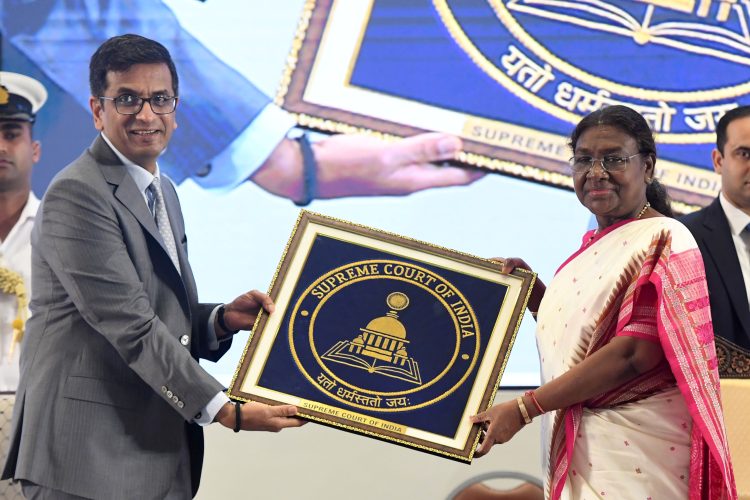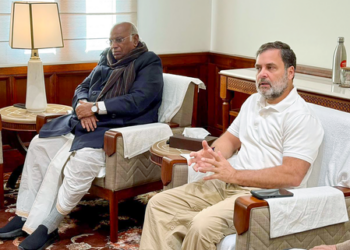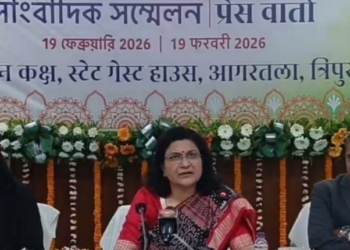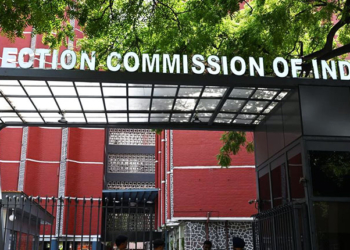New Delhi: Droupadi Murmu on Sunday said that it is a “sad aspect” of our social life that, in some cases, people with resources continue to roam around fearlessly and freely even after committing crimes and the victims live in fear “as if those poor people have committed some crime”.
Addressing the valedictory session of the two-day National Conference of District Judiciary, organised by the apex court, President Murmu said that when court decisions in a heinous crime like rape come after a generation has passed, the common man feels that the “judicial process lacks sensitivity”.
She said that the poor people from villages are afraid to go to court and they become a participants in the justice dispensation process only under great compulsion.
“Often they tolerate injustice silently because they feel that fighting for justice can make their lives more miserable. For them, going away from the village to the court even once becomes a cause of great mental and financial pressure,” she added.
The President called for taking “every possible measure to change the culture of adjournment”, adding that many people cannot even imagine the pain that poor people experience due to this situation.
In her address, the President also suggested assessment and improvement of the health and education status of the children of women who are in prison. She said that measures should be taken to improve the thinking and mental health of juvenile delinquents, adding that imparting them with useful skills for living and providing them free legal aid should also be our priority.
The President highlighted that pendency and backlog of cases is a big challenge before the judiciary and cases remaining pending for as long as over 32 years. She emphasised that programmes such as special Lok Adalat week should be organised more frequently to tackle the pendency of cases. She suggested making arrangements to provide justice in the local language and local conditions to achieve the ideal of taking justice to everyone’s doorstep.
“The judiciary, government and police administration should work together to find solutions to issues related to evidence and witnesses,” the President added.
On the occasion, President Murmu also unveiled the new flag and insignia of the Supreme Court to commemorate the 75th year of its establishment, observing that the Supreme Court has made an invaluable contribution as a vigilant sentinel of the judicial system of the world’s largest democracy.
Indian jurisprudence has a very respectable place because of the Supreme Court, the President added.
She appreciated that on the completion of 75 years of its establishment, the Supreme Court had organised many programmes which have increased people’s trust and attachment towards our judicial system.
President Murmu reiterated that people consider every judge in the country as God and every judge and judicial officer of the country has the moral responsibility to respect dharma, truth, and justice.
“The district-level courts determine the image of the judiciary in the minds of crores of citizens. Therefore, providing justice to the people through the district courts with sensitivity and promptness and at a low cost is the basis of the success of our judiciary,” she said.
The President highlighted that in recent years there have been significant improvements in the availability of infrastructure, facilities, training and human resources of the judiciary at the district level but a “lot remains to be done in all these areas”.
(IANS)
















